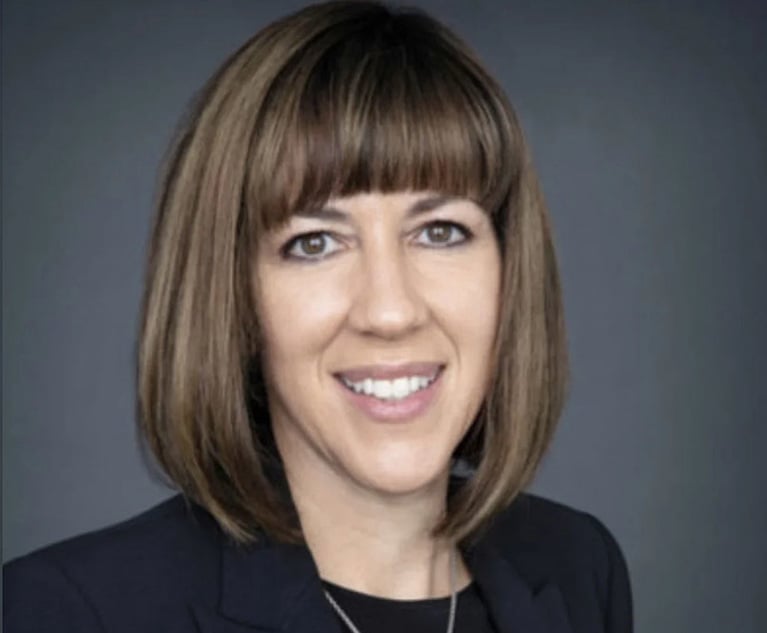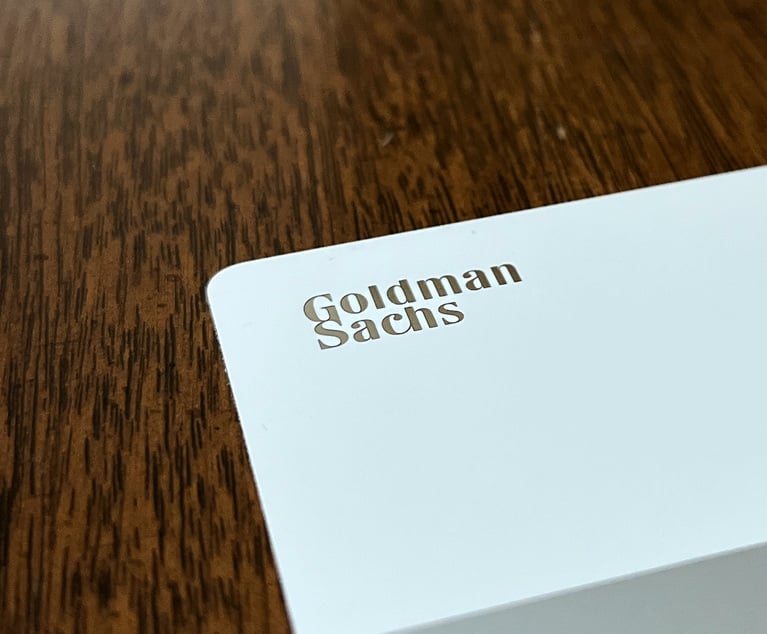Everly Brother Wins 'Cathy's Clown' Due to Repudiation of Co-Authorship
Entertainment Law columnists Michael Rudell and Neil Rosini discuss the Everly Brothers' case where Don Everly was awarded sole royalties for the song “Cathy's Clown,” which his brother Phil claimed he co-authored, despite signing a “release and assignment” that ceded 100 percent of songwriter royalties to Don. The authors conclude that “despite the unusual nature of this case, details and analysis leading to the result deserve the attention of current and would be co-authors.”
March 11, 2019 at 02:40 PM
9 minute read
 Neil J. Rosini and Michael I. Rudell
Neil J. Rosini and Michael I. RudellMusical groups use various ways to create compositions they ultimately record. One is for the members to create lyrics and music collaboratively. Having done so, they register copyrights as joint works, jointly assign the copyright in the compositions to a music publisher while retaining a songwriter's share of income, and register the song as joint composers with the performing rights organization of their choice, such as BMI. The Everly Brothers followed that pattern for their 1960 No. 1 pop hit, “Cathy's Clown”—except perhaps actually co-authoring the song.
In 1980, seven years after the duo broke up, Don Everly, the older brother, asserted that he was sole author notwithstanding several public acknowledgements to the contrary. Don had brother Phil sign a “release and assignment” that ceded to him 100 percent of songwriter royalties. Also, depending on interpretation, that document either acknowledged that Don was sole composer from the start or else merely authorized Don to take credit publicly as sole author—at least until the authors' rights to terminate grants under §304(c) of the Copyright Act could take effect 56 years after publication.
In 2017, Don sued in the U.S. District Court for the Middle District of Tennessee for a declaratory judgment that he was sole author and owner of 100 percent of the termination interest. In response, Phil's successors asserted co-authorship in support of a counterclaim and an affirmative defense. Don subsequently moved for summary judgment and won the motion on statute of limitations grounds.
Although it seems relatively rare for creators who initially treat their work as jointly authored to change their minds, the factual details and legal analysis leading to the result in this case deserve the attention of current and would be co-authors.
Background
From 1960 to 1980, both Don and Phil were credited on all copies as co-authors, and they shared songwriter royalties equally. But in 1980, Don demanded that Phil's name be “taken off” of “Cathy's Clown” and although Phil was “agitated and angry,” he signed the release and assignment. (His reasoning was unclear.) While acknowledging that the music publisher owned the copyright, the one-page document assigned to Don all of Phil's “rights, titles, interests and claim to the musical composition 'CATHY'S CLOWN'” and two others. It also directed that both the music publisher, Acuff-Rose Publications, and BMI “correct their records accordingly … to make payments of amounts due and to become due to [Don] … solely on and after the effective date hereof.” The document was recorded in the Copyright Office and filed with BMI and the music publisher, after which hundreds of licenses were issued that designated Don as sole author.
Further, on the occasion of Reba McEntire's cover recording of “Cathy's Clown” in 1990, a BMI award was presented to Don as the sole songwriter. And in 1988, Acuff-Rose renewed the copyright to “Cathy's Clown” on Don's behalf as the sole renewal claimant listed on the renewal form and as sole author of words and music. But Phil privately maintained that he was co-author of the song.
In 2011, Don filed a notice to terminate the 1960 grants under copyright relating to “Cathy's Clown” and recapture 100 percent of those rights, effective in April, 2016. Don also filed with the Copyright office to remove Phil's name as author, but that effort failed because the request was not filed within 28 years of the initial registration.
There was no evidence that Phil made any attempt to recapture any rights with respect to “Cathy's Clown” during his lifetime, but in 2014, following Phil's death, his wife and son filed their own notice purporting to terminate the grant to Acuff-Rose and claim 50 percent of author's rights in the extended renewal term, effective in November 2016. In 2016, they also served a notice of termination on Don purporting to terminate all rights granted in the 1980 release and assignment.
In his complaint filed in November 2017, which related to three songs but focused on “Cathy's Clown,” Don sought a judicial declaration that Phil was not an author, the defendants are not the statutory successors for termination purposes, the 1980 release and assignment was not a grant of copyright or a right under copyright and therefore not subject to termination, and that Don owned 100 percent of the U.S. copyright as well as the songwriter royalties.
The defendants, which included a family trust, Phil's wife at the time of his death, and his two sons, filed an answer with affirmative defenses and a counterclaim. The counterclaim sought declarations that Phil was an author of “Cathy's Clown,” that the defendants' termination notices were valid and that they were entitled to half of the songwriters' income. Their defenses asserted co-authorship, too. On the motion for summary judgment, Don asserted that because both defendants' counterclaims and defenses require a determination that Phil was co-author, they were barred by the statute of limitations.
The Repudiation Issue
In a Nov. 6 decision, the court granted Don's motion for summary judgment without deciding who wrote the song or the meaning of the 1980 release and assignment. Instead, the result turned on the three-year limitations period in §507 of the Copyright Act, for which the clock began ticking, according to the decision, when plain and express repudiation of co-ownership was communicated by Don to Phil.
The court found that irrespective of whether the 1980 release and assignment constituted that plain and express repudiation, there was an “accumulation of events” that included: Acuff-Rose and BMI changed their records; licenses after 1980 as well as Reba McIntyre's cover credited Don as sole author; Don received a BMI award as sole author; and Phil was aware of all of it but never “reneged on the [1980] agreement” or publicly refuted Don's claim of sole authorship.
Further, Acuff-Rose renewed the copyright specifying Don as the sole renewal claimant and in 2011 Don filed a notice of termination to recapture 100 percent of the grant of authors' rights. Thus a “totality of the evidence” constituted a plain and express repudiation by Don of Phil's claim to joint ownership no later than 2011 when Don's notice of termination became a public record. Accordingly, the court agreed with Don that both the defendants' counterclaim and their defenses were time-barred.
Phil's successors moved to alter or amend the judgment on several grounds related to the applicability of the statute of limitations. Their arguments included that the statute of limitations can be used only as a shield against a claim and never a sword to cut off the consideration of a defense, citing Nimmer on Copyright and decisions by the Supreme Court, the U.S. Court of Appeals for the Second and Tenth Circuits, and the Southern District of New York. And further, even if what they characterized as a “defensive” counterclaim could be blocked by the statute of limitations, a defense that Phil Everly was a co-author could not be time-barred.
The defendants also argued that the court erred in concluding that Don plainly and expressly repudiated Phil's claim to joint authorship because, as the Second Circuit recently held, copyright registration (and by extension, a termination notice) filed in the Copyright Office does not trigger the accrual of a claim. And the remainder of the facts relied upon by the court were inconsistent with the 1980 Release and Assignment “in which Phil allowed Don to take public credit for authorship…(and receive the royalties therefrom).”
They also argued that the defendants' claim to Phil's termination rights could not have accrued prior to November 2016 when their notice of termination became effective. Among other arguments, they cited Don's admission four years after the Release and Assignment that he and Phil “hashed…out” “Cathy's Clown” together, which combined with other public acknowledgements, would not have led Phil to expect that his co-authorship would be contested when it came time to terminate grants under §304(c).
Phil's successors fared no better on the second motion. In a Feb. 5 decision, the court held that because there was no intervening change of controlling law or newly discovered evidence (even though both parties presented additional evidentiary material), the defendants' request to alter or amend the judgment failed. The court observed that the motion was based on “purported clear errors of law in the initial ruling,” but the defendants' legal arguments either were raised in their response to Don's motion for summary judgment or could have been raised. The defendants have since filed a notice of appeal relating to both motions.
Conclusion
The case presents some unusual aspects, such as the ambiguous release and assignment that waived credit and income and also could be interpreted as an abandonment of authorship. Yet the document was never interpreted because events occurring after its execution and more than three years before litigation commenced were found in “totality” to be a repudiation by Don of Phil's authorship. The interpretation therefore was made irrelevant by the limitations provision of the Copyright Act even though it might have shed light on some of those intervening events.
Despite its unusual nature and pending the results of the appeal, the case offers some lessons.
First, creators whose co-authorship is challenged should not limit their reaction to a quiet angry simmer even if their works were once acknowledged to be jointly written, originally were registered in their names as co-authors, assigned jointly to a publisher, and registered jointly with a performing rights organization.
Second, when one co-author publicly disputes another's claim to authorship of a work, the latter should not rely on the termination right—even though it is often called “inalienable”—to set things straight. By the time the termination right is invoked, the second author's claim to authorship might be irreparably undermined.
Michael I. Rudell and Neil J. Rosini are partners in Franklin, Weinrib, Rudell & Vassallo. Both practice entertainment law and have written and lectured extensively on the subject.
This content has been archived. It is available through our partners, LexisNexis® and Bloomberg Law.
To view this content, please continue to their sites.
Not a Lexis Subscriber?
Subscribe Now
Not a Bloomberg Law Subscriber?
Subscribe Now
NOT FOR REPRINT
© 2025 ALM Global, LLC, All Rights Reserved. Request academic re-use from www.copyright.com. All other uses, submit a request to [email protected]. For more information visit Asset & Logo Licensing.
You Might Like
View All
'It's a Matter of Life and Death:' Ailing Harvey Weinstein Urges Judge to Move Up Retrial

Spotify GC Steps Down, Opts to 'Step Away From Full-Time Corporate Life'
2 minute read
Goldman Sachs Secures Dismissal of Celebrity Manager's Lawsuit Over Failed Deal
3 minute read
Walt Disney, IBM Denied High Court Review of Old NY Franchise Tax Law
3 minute readTrending Stories
- 1Uber Files RICO Suit Against Plaintiff-Side Firms Alleging Fraudulent Injury Claims
- 2The Law Firm Disrupted: Scrutinizing the Elephant More Than the Mouse
- 3Inherent Diminished Value Damages Unavailable to 3rd-Party Claimants, Court Says
- 4Pa. Defense Firm Sued by Client Over Ex-Eagles Player's $43.5M Med Mal Win
- 5Losses Mount at Morris Manning, but Departing Ex-Chair Stays Bullish About His Old Firm's Future
Who Got The Work
J. Brugh Lower of Gibbons has entered an appearance for industrial equipment supplier Devco Corporation in a pending trademark infringement lawsuit. The suit, accusing the defendant of selling knock-off Graco products, was filed Dec. 18 in New Jersey District Court by Rivkin Radler on behalf of Graco Inc. and Graco Minnesota. The case, assigned to U.S. District Judge Zahid N. Quraishi, is 3:24-cv-11294, Graco Inc. et al v. Devco Corporation.
Who Got The Work
Rebecca Maller-Stein and Kent A. Yalowitz of Arnold & Porter Kaye Scholer have entered their appearances for Hanaco Venture Capital and its executives, Lior Prosor and David Frankel, in a pending securities lawsuit. The action, filed on Dec. 24 in New York Southern District Court by Zell, Aron & Co. on behalf of Goldeneye Advisors, accuses the defendants of negligently and fraudulently managing the plaintiff's $1 million investment. The case, assigned to U.S. District Judge Vernon S. Broderick, is 1:24-cv-09918, Goldeneye Advisors, LLC v. Hanaco Venture Capital, Ltd. et al.
Who Got The Work
Attorneys from A&O Shearman has stepped in as defense counsel for Toronto-Dominion Bank and other defendants in a pending securities class action. The suit, filed Dec. 11 in New York Southern District Court by Bleichmar Fonti & Auld, accuses the defendants of concealing the bank's 'pervasive' deficiencies in regards to its compliance with the Bank Secrecy Act and the quality of its anti-money laundering controls. The case, assigned to U.S. District Judge Arun Subramanian, is 1:24-cv-09445, Gonzalez v. The Toronto-Dominion Bank et al.
Who Got The Work
Crown Castle International, a Pennsylvania company providing shared communications infrastructure, has turned to Luke D. Wolf of Gordon Rees Scully Mansukhani to fend off a pending breach-of-contract lawsuit. The court action, filed Nov. 25 in Michigan Eastern District Court by Hooper Hathaway PC on behalf of The Town Residences LLC, accuses Crown Castle of failing to transfer approximately $30,000 in utility payments from T-Mobile in breach of a roof-top lease and assignment agreement. The case, assigned to U.S. District Judge Susan K. Declercq, is 2:24-cv-13131, The Town Residences LLC v. T-Mobile US, Inc. et al.
Who Got The Work
Wilfred P. Coronato and Daniel M. Schwartz of McCarter & English have stepped in as defense counsel to Electrolux Home Products Inc. in a pending product liability lawsuit. The court action, filed Nov. 26 in New York Eastern District Court by Poulos Lopiccolo PC and Nagel Rice LLP on behalf of David Stern, alleges that the defendant's refrigerators’ drawers and shelving repeatedly break and fall apart within months after purchase. The case, assigned to U.S. District Judge Joan M. Azrack, is 2:24-cv-08204, Stern v. Electrolux Home Products, Inc.
Featured Firms
Law Offices of Gary Martin Hays & Associates, P.C.
(470) 294-1674
Law Offices of Mark E. Salomone
(857) 444-6468
Smith & Hassler
(713) 739-1250






